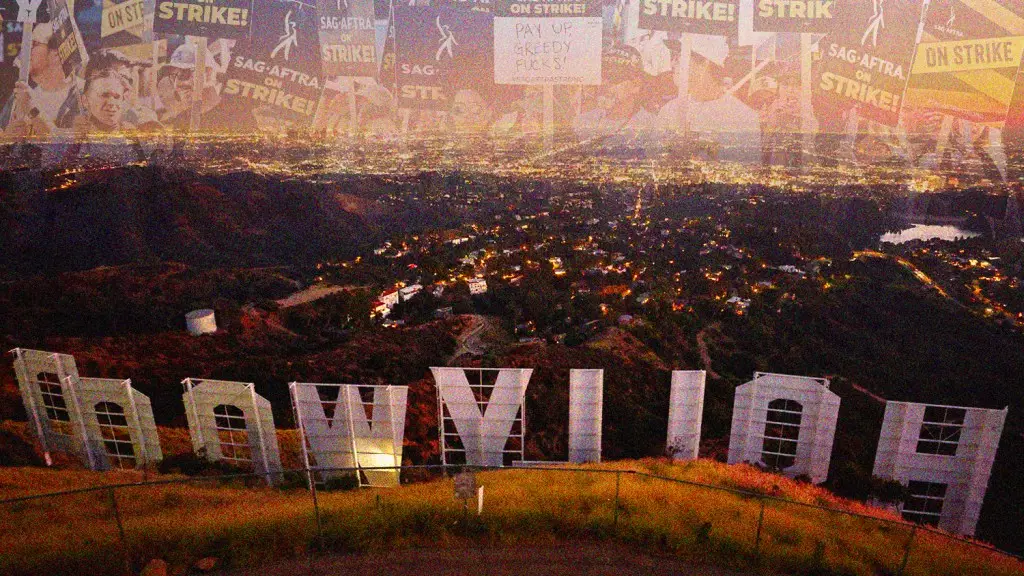The negotiations between the Screen Actors Guild-American Federation of Television and Radio Artists (SAG-AFTRA) and the Alliance of Motion Picture and Television Producers (AMPTP) have reached a critical juncture. As the actors’ strike enters its 112th day, both sides are cautiously optimistic but remain tight-lipped about the ongoing discussions. Today was described as “more of a waiting game” by an insider, as the studios stayed silent and did not respond to the guild’s revised AI proposal and comprehensive counter. In this article, we will delve into the current state of the negotiations and examine the potential impact of these talks on the entertainment industry.
Despite the anticipation of talks between SAG-AFTRA’s negotiator Duncan Crabtree-Ireland and AMPTP president Carol Lombardini, no formal discussions took place today. While some might interpret this as a setback, sources from both sides caution against reading too much into it. According to a guild source, this deliberate approach indicates that the proposals are being taken seriously, and both parties are committed to reaching a fair and mutually beneficial agreement. However, the lack of response from the AMPTP leaves the negotiations in a state of limbo, and a timeline for further talks remains uncertain.
One intriguing development in the negotiations is the potential consensus on a streaming financial revenue share for performers. Although details are scarce, a studio source suggests that both sides may have reached “a comfortable place” on this issue. However, until an official agreement is reached, it is prudent to exercise caution and await further updates. Both SAG-AFTRA and the AMPTP have refrained from commenting on the matter, leaving industry observers and stakeholders in suspense.
On the streets, the picket lines remained active at various production locations, including studios such as Netflix, Sony, Disney, Paramount, Warner Bros Discovery, and Amazon. The SAG-AFTRA strike, combined with the Writers Guild of America strike earlier in the year, has caused significant economic implications for the California entertainment industry. To date, it is estimated that the strikes have cost the state’s economy over $6.5 billion and resulted in the loss of 45,000 entertainment-sector jobs. Many working families have experienced a six-month gap in their income stream, further exacerbating the financial strain.
The strikes have not only affected workers but have also impacted major studios. Paramount Global CFO Naveen Chopra revealed that the ongoing strikes have resulted in “nearly $60 million of strike-related idle costs” for the company. Furthermore, the impact on Paramount’s film slate has forced the studio to make significant adjustments. The strike’s negative effects on the scripted TV side are still being felt, even as late-night productions have resumed. The financial toll on studios is a pressing concern, as they strive to revive feature and TV production and meet release deadlines.
The progress made in the negotiations between SAG-AFTRA and the AMPTP will serve as a benchmark for the International Alliance of Theatrical Stage Employees (IATSE) and the Teamsters Union in their future talks. Both unions have extended their support to the WGA and SAG-AFTRA, emphasizing solidarity among unions. The outcome of the ongoing negotiations holds significant implications for the entire entertainment industry, as stakeholders grapple with the potential impact of artificial intelligence (AI).
SAG-AFTRA has been persistent in its pursuit of AI rights, not only for top-tier talent but also for extras and performers lower down the call sheet. The guild’s primary demand is to prevent the unlimited duplication of its members’ likeness without proper compensation. The proposed solution is to employ AI on a project-by-project basis, ensuring fair remuneration and safeguarding the integrity of the acting profession. The guild’s negotiator, Duncan Crabtree-Ireland, articulates the need for guardrails around AI technology, regardless of its future advancements. These protections would secure performers’ rights to informed consent and fair compensation in the ever-evolving landscape of AI-driven productions.
As the negotiations continue, all eyes are on SAG-AFTRA and the AMPTP. The actors’ strike has already had a profound impact on the entertainment industry, both economically and socially. The resolution of this dispute will undoubtedly shape the future landscape of collective bargaining negotiations and the rights of performers in an increasingly digital and AI-driven world. While the waiting game continues, it remains crucial to recognize the efforts of both sides in pursuing a good and fair deal that will benefit all stakeholders involved.

